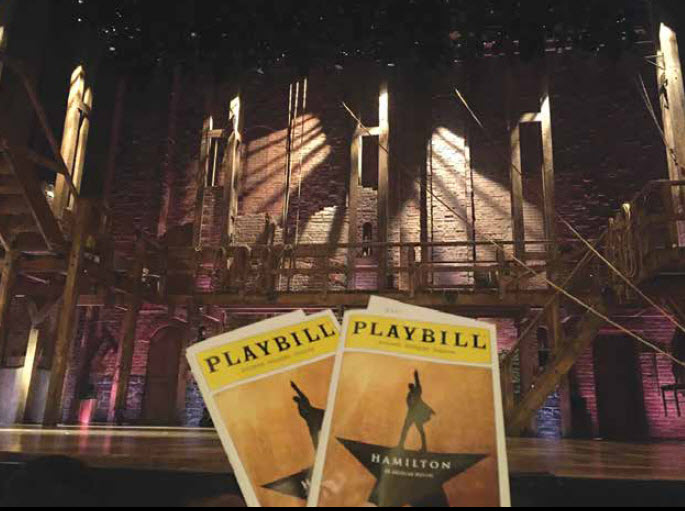By: Mae Lewis
Quarantine has given me the opportunity to FINALLY watch the musical Hamilton, released for streaming on Disney+. I’ll be honest, that my decision to watch it felt somewhat obligatory. I’m not particularly a fan of rap music, and I despise watching films of live theater. Live theater carries a particular energy which cannot be transferred digitally, and taped live performances fall flat and feel static.
I was also not in the mood to watch what I had heard described as “modern liberalism.” The actors have used their cultural clout to offer political commentary, something I find particularly distasteful. Still, my devotion to the theater compelled me to watch a musical that won 11 Tony Awards and the Pulitzer Prize for Drama. I’ve become a fan of Lin-Manuel Miranda’s talent, and since I have no plans to travel to Broadway anytime soon, the couch seemed as good an option as any.
I didn’t know what to expect.
“A rap musical about the founder of the federal banking system?”
It’s a terrible pitch.
But 16 Tony nominations? (The most ever received by a single production, surpassing The Producers, Cats, Fiddler on the Roof, Sound of Music, and every other musical you’ve ever heard of).
Critically speaking, of the elements that make up musical theater: singing, music, choreography, lyrics; Hamilton excels at them all. Hamilton combines so many different musical elements: hip-hop, soul, jazz, show tunes, and others, that I forgot about the stuff I didn’t like. The choreography was impressive and imaginative. Lyrically, it is brilliant. Brilliant.
Just. Creative. Genius.
(#PROTIP: Watch it with subtitles. You will appreciate the genius of the lyrics all the more).
Historically, it takes a lot of creative liberties- for which Miranda has received a lot of criticism. But it isn’t meant to be a history lesson. The chief criticism perhaps is that every member of the cast is a person of color, with the exception of King George III. Our collective conscious awareness of the founding fathers comes through the statues which represent them. Very WHITE statues. Miranda brings them to live in literal living color.

BUT.
The REAL GENIUS of Hamilton is not the music or lyrics or choreography. It isn’t even found in the story of Hamilton himself (Spoiler alert: the story isn’t really about Hamilton). Miranda uses the life of Alexander Hamilton to tell an American story. The story of a struggle for freedom. The story of a dream of freedom. The story of a dream of equality.
The real message of Hamilton is passion, and the real takeaway from Hamilton is the spark that it ignites. Passion, fire, fervour, intensity. Passion for a dream–a country where “all men are created equal.” I have never in my life seen a story portrayed with such “unparalleled passion.” The energy of the actors (and of Miranda himself playing the title role of Hamilton) conveys the zeal of our founding fathers, building something bigger than themselves…a dream of freedom.
Hamilton himself risks (and loses) everything: his career, his integrity, his family and love to show that his COMMITMENT to the American dream is bigger than all of those things.
It will make you weep.
Google “crying over Hamilton,” and you will see it is not an exaggeration. If you love your country, you will be moved. And it will make you ask the question, “Why am I crying over Alexander Hamilton?”
It is transformative. Individually and collectively, we struggle with our own identities, and the identity of our nation. Hamilton brilliantly challenges and fuses these elements. (Did I mention that Lin-Manuel Miranda is a genius?)
I believe Hamilton has become a cultural phenomenon not just for the spark it ignites in the viewer, but because it removes the historical distance between the founding fathers and the the struggle of our nation TODAY. If you feel left out of today’s news stories, Hamilton will fill in the blanks for you.
Even if you are against the artistic expression of multicultural patriotism, I encourage you to watch it. If not for the entertainment value, watch it for the historical value: the history of a cultural phenomenon we are watching unfold RIGHT NOW. “This is not a moment, it’s the MOVEMENT.” Even if you choose to stand on the sidelines and not participate in the current political narrative, at least do yourself the favor of knowing what it is you are missing.
By: Mae Lewis


